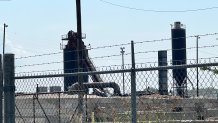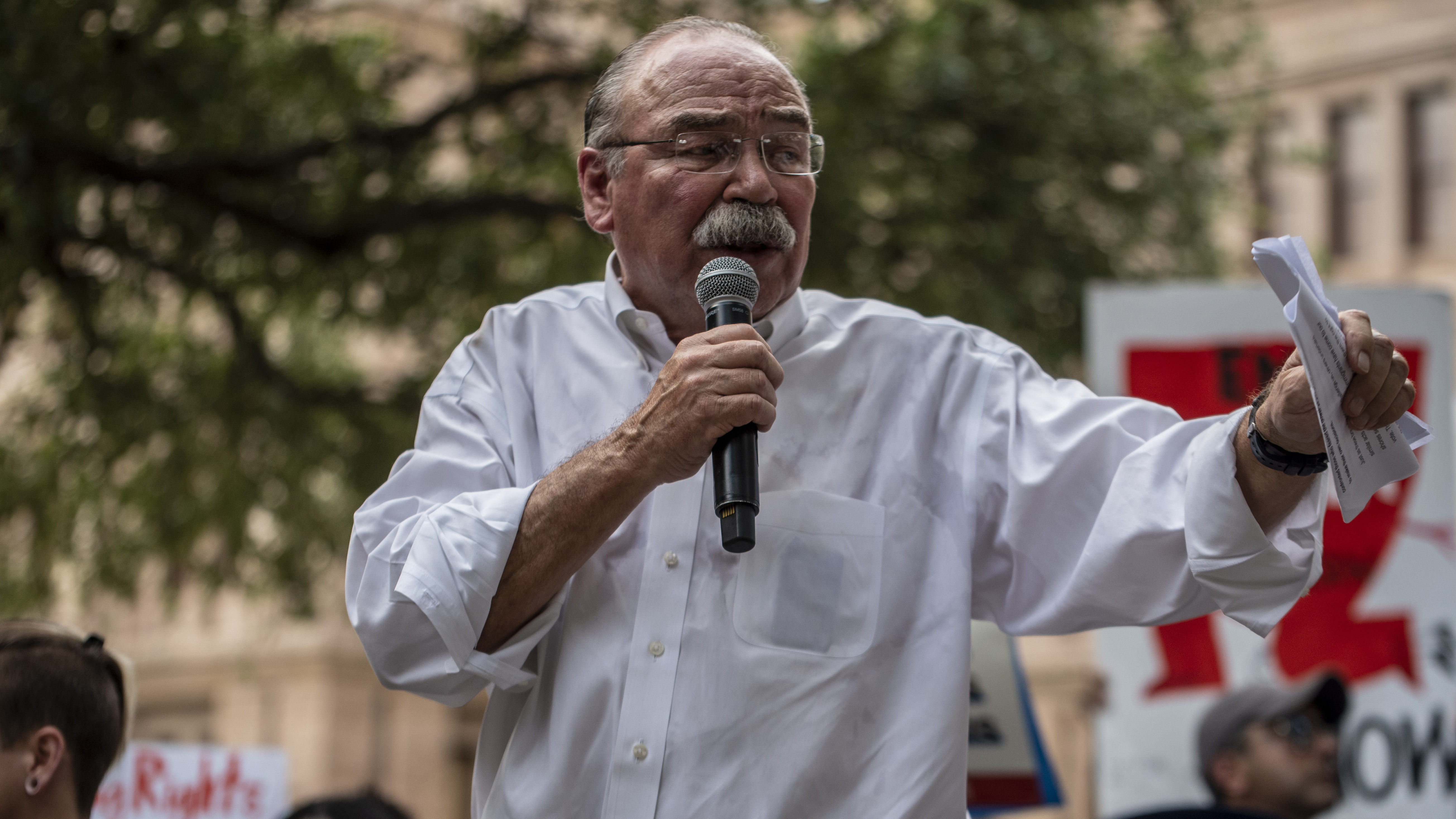An asphalt plant that has plagued a Dallas community for nearly 15 years has decided to shut its doors after reaching a deal with city officials.
On Friday morning, Austin Industries officially announced that they will stop their operations at the plant near the community of Joppa on June 26 and will decommission their site within 120 days.
For Joppa residents, it's the news they've been waiting for. The community is located several miles southeast of downtown Dallas.
"It just brought joy to our ears this morning, to start my day,” said Emmanuel Davis, who has lived in Joppa for the last few years with his five children. “I was already excited over the top now.”
Get top local stories in DFW delivered to you every morning. Sign up for NBC DFW's News Headlines newsletter.
Joppa is a predominantly Black neighborhood and a historical Freedmen's Town.
"The ancestors of this land are pushing us forward,” said Alicia Kendrick, a chairperson for the Joppa Environmental Health Project and a resident of the community. "This land is important to us. It's not just an industrial area. This is our home, this is our community. This is where we're raising our children. It’s very important to give reverence to the people who walked this land and worked it and live their whole lives here.”
The community has already lived across from a Union Pacific railyard for years before the asphalt plant arrived in 2009.

“We live right next to and are surrounded by industry at all times. It’s clanking and banging and smoking at all hours of the night and at all hours of the day. There’s no stop to it,” said Kendrick, who worries about raising her own children in the neighborhood so close to the activity. “I want [my kids] to understand that, even if you were given the worst, there’s still some things you can make out of it that is extremely beautiful. And that’s just the history of our people.”
Local
The latest news from around North Texas.
In recent years, residents have been vocal about the asthma and other health issues they've experienced, mainly among the youth and elderly. Health and environmental studies confirmed their concerns.
"I have a son who had to take eight prescriptions a day to come outside and live in Joppa,” said Temeckia Derrough, Dallas environmental commissioner for District 7 serving Joppa.
Over the years, various groups came together to fight for the same cause. Their voices were finally heard when city officials worked out an agreement with the company to close the plant, following an automatic permit-renewal process that began a few months ago.
“I am so excited about this move that Austin Bridges is making. I hope it shows other industrial companies that integrity of being in communities and close to communities,” said Derrough.
CITY COUNCIL EFFORTS
Dallas councilman Adam Bazaldua, who represents the district Joppa resides in, helped the city secure the agreement with the company.
“We have continued to work diligently with Austin Industries for the past fourteen months to find the most effective path forward while putting the health and safety of our community first,” he said in the statement that announced the closure on Friday. "In my discussions since being on council, Austin Industries has shown a desire to be a good neighbor and have acknowledged a clear consensus in the Joppa community for heavy industry to no longer exist adjacent to their residential neighborhood. We have maintained a positive and productive partnership while determining the best path forward with their site."
Recently, the city had also put in dollars for infrastructure from equity funds to help dozens of residents with home repairs. Just over the past 18 months, they got up to $100,000 for each of their homes.
"Joppa is one of our last standing Freedman's towns. We have a history of neglecting the importance and the significance of what that stands for. This is where the presence of freedom came to Black Americans and Black Texans," Bazaldua said in an interview with NBC 5. "Several of those communities have been plagued by not just gentrification but by negligence and intentional construction of highways. This is one of the instances where environmental justice is exactly what we are addressing when it comes to the compromising of the quality of life that exists."
Bazaldua also called out past leadership that he said led to this situation in the first place.
"It's important for us to be intentional with our efforts and understand the negligence that has occurred in the past, understand what the ramifications of decisions of our past has done to compromise the quality of life,” Bazaldua said. "We realize that it's been disproportionately underinvested in and we also need to understand that the historical significance of what Black Dallas contributes to Dallas overall should also be talked about and celebrated and it can't be if we're not willing to invest and make positive changes in the future."
Bazaldua said this case is an example of addressing equity in the city of Dallas.
"I think that we've shown that with some of the investments that we've had for infrastructure that was disproportionately under-invested in, in our city's past," Bazaldua said. "One major example that we have is the difference in quality of life that we've had expectations for our Brown and Black communities versus that of our more affluent and predominantly white communities of our city."
He said residents in Joppa and other parts of Southern Dallas have been forced to live with heavy industry, whereas similar projects or proposals would have not been allowed in other more affluent parts of the city.
"So correcting those wrongs and addressing the significance of what that means is something that is much more than just putting dollars toward infrastructure," Bazaldua said. "This is making longstanding changes because having an industry like this adjacent to your community with the impact that it has on air quality and quality of life overall is something that needs to be addressed."
Bazaldua said this is just the starting point for where they need to continue to go when it comes to zoning cases and planning areas around Joppa and Southern Dallas.
WHAT'S NEXT?
It’s unknown what happens next after the asphalt plant moves. The space is still zoned industrial.
Either way, city leaders told NBC 5 that Joppa residents will have a seat at the table for those discussions.
"There’s so many possibilities that we can dream up in that space. And we don't want the highest bidder to just come in and start polluting again. That's really just our biggest focus,” said Kendrick.
Richard Mills, president of Austin Bridge & Road, sent the following statement to NBC 5 that reads in part:
“Since 2009, Austin Bridge and Road has worked in good faith to be a good community partner with funding and support for projects and programs, but as leadership has previously told Dallas city officials, it was never the company’s intention to continue long-term operations at the facility. Until the company begins operations at a new location, it will source materials from alternate sites to ensure projects that are already underway can continue without disruption. Austin Bridge and Road is proud of the support we provided Joppa and South Dallas and remain committed to responsible business operations and serving the communities in which we operate.”



